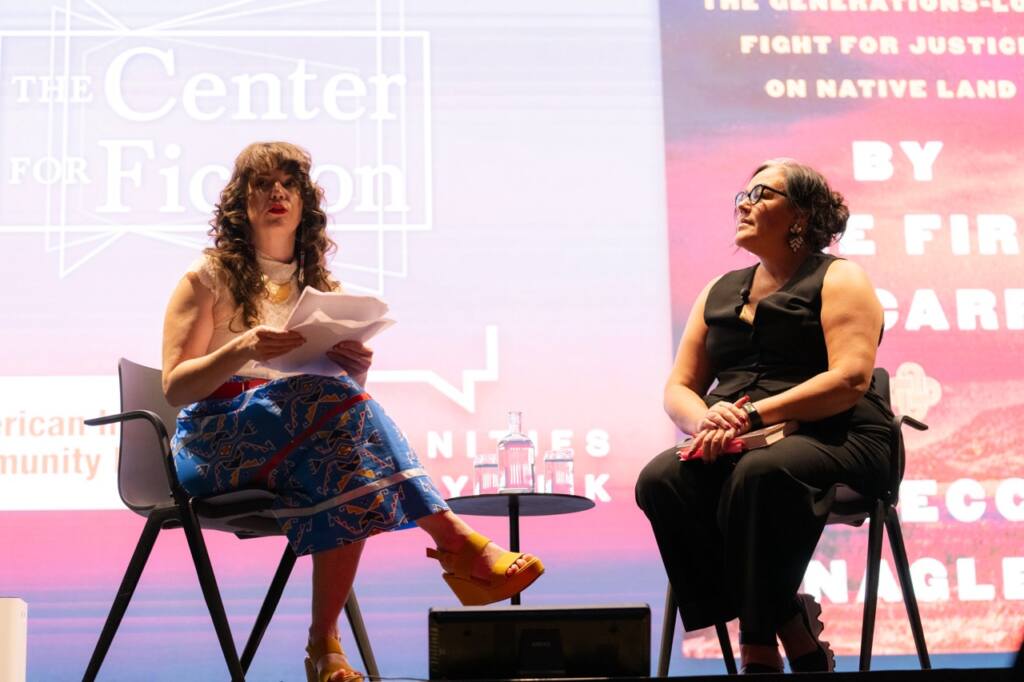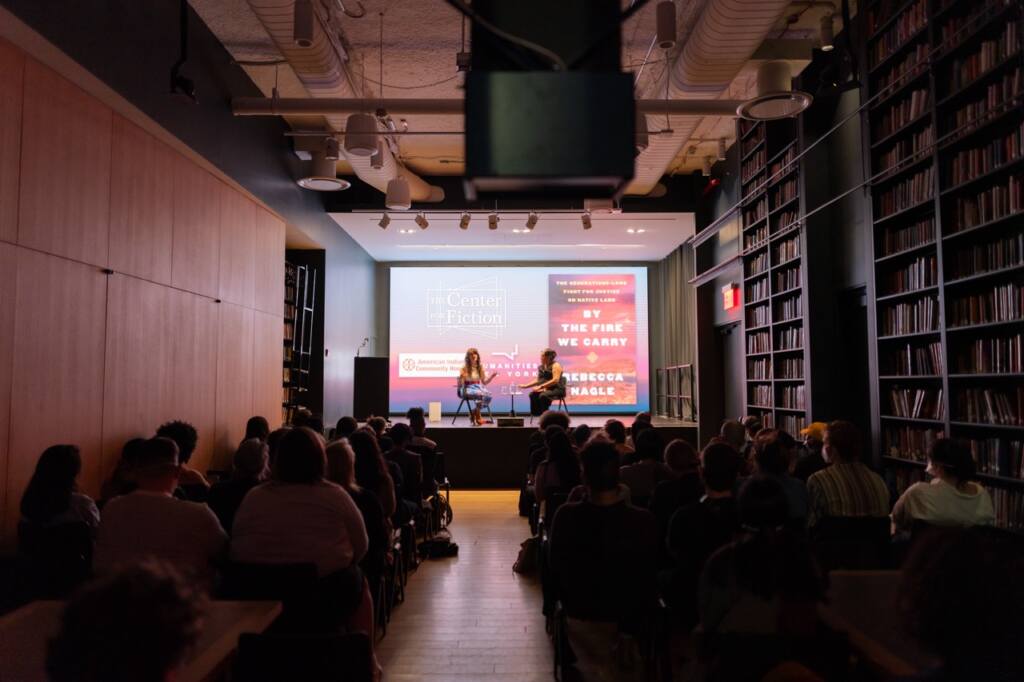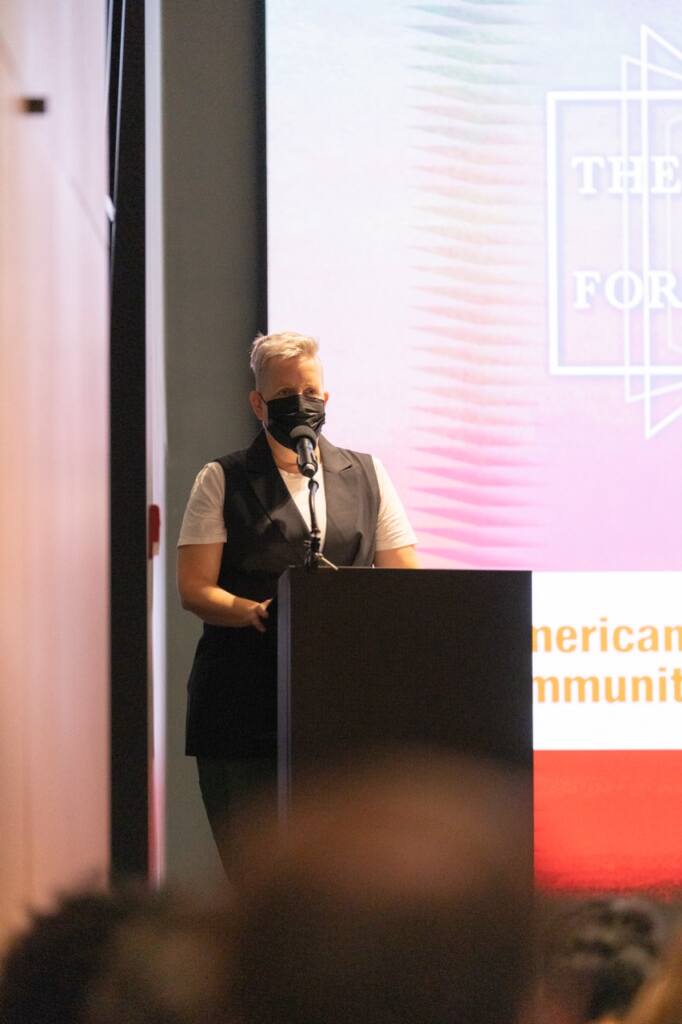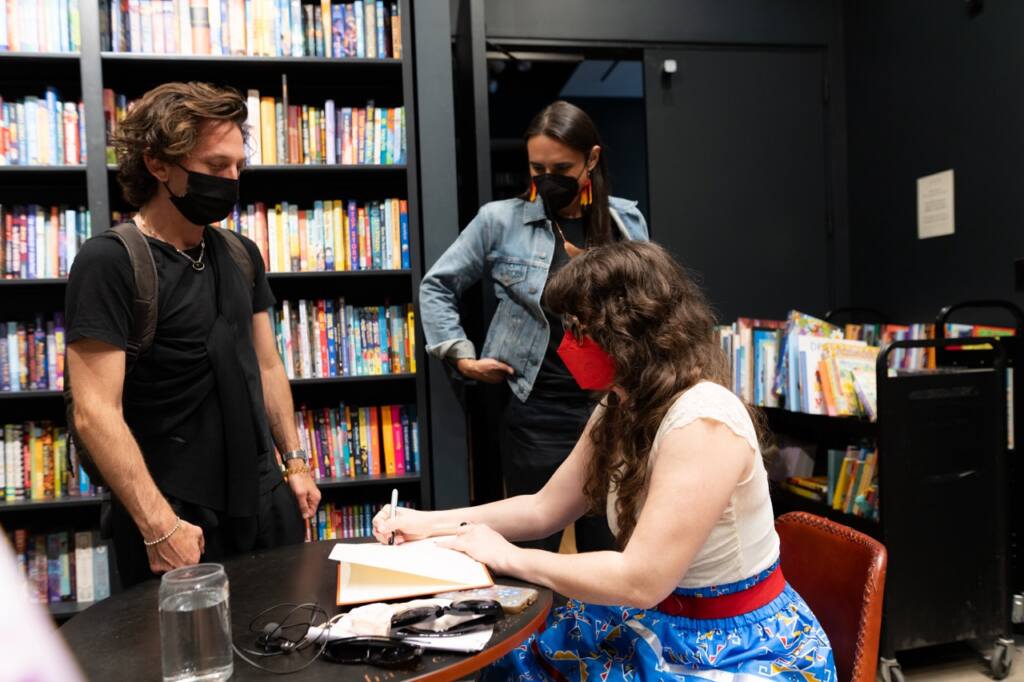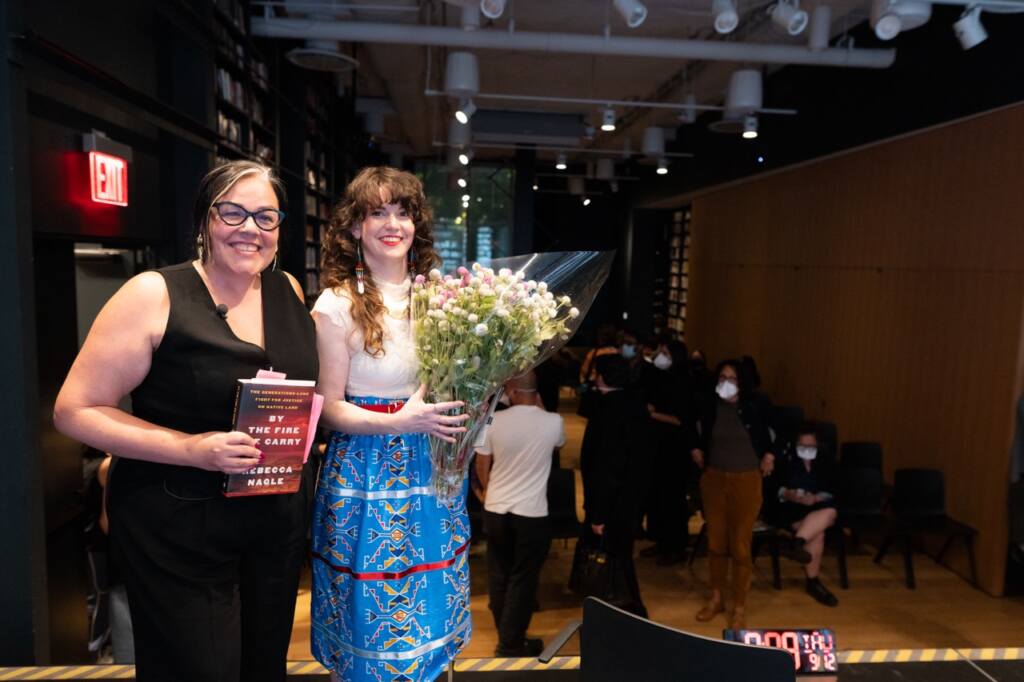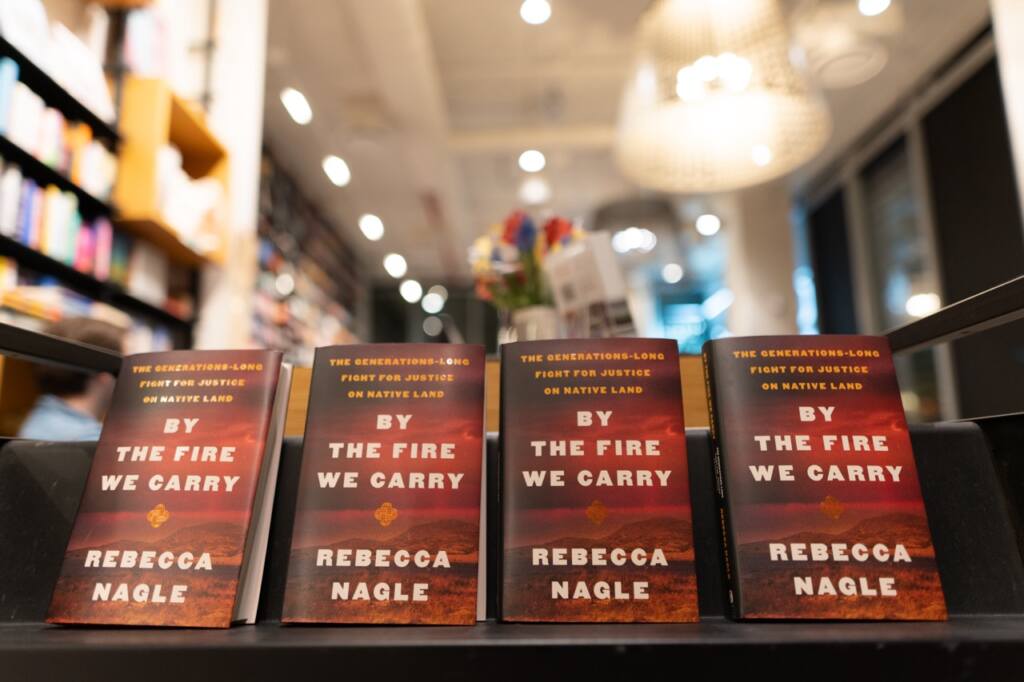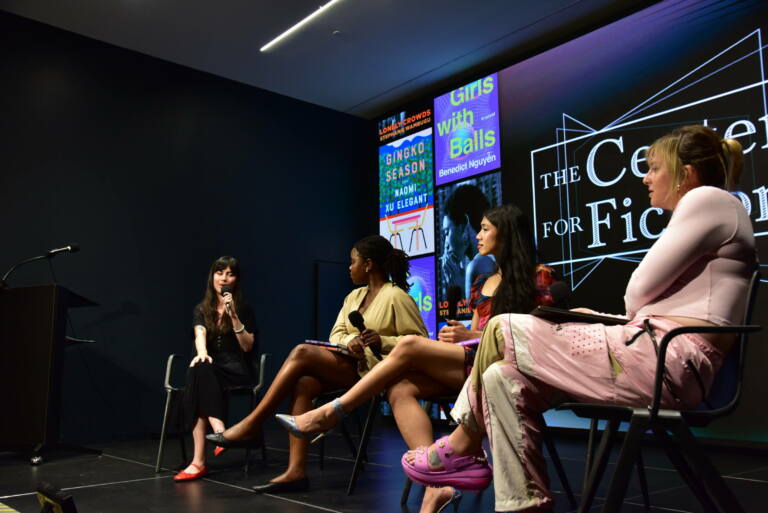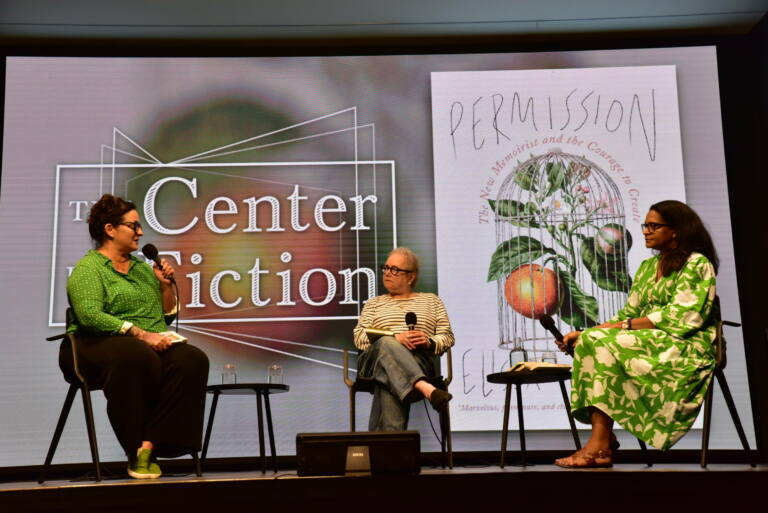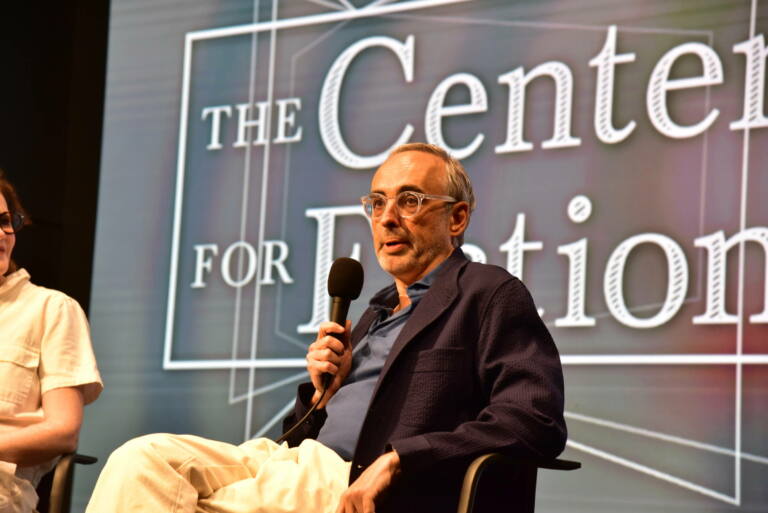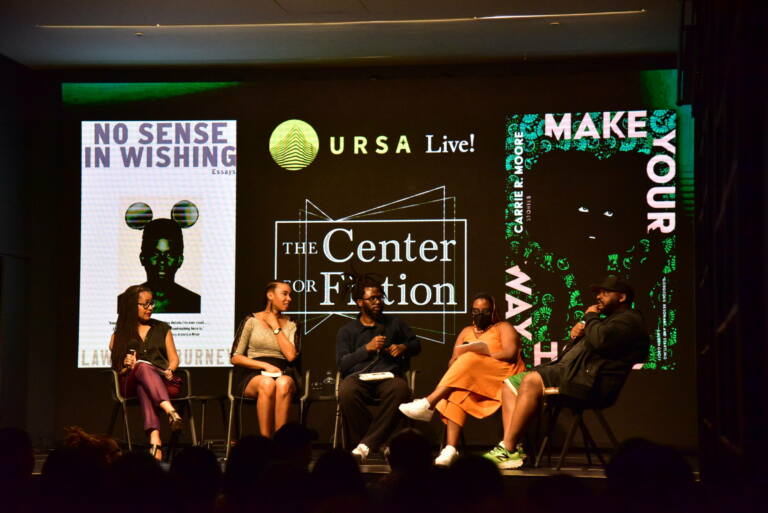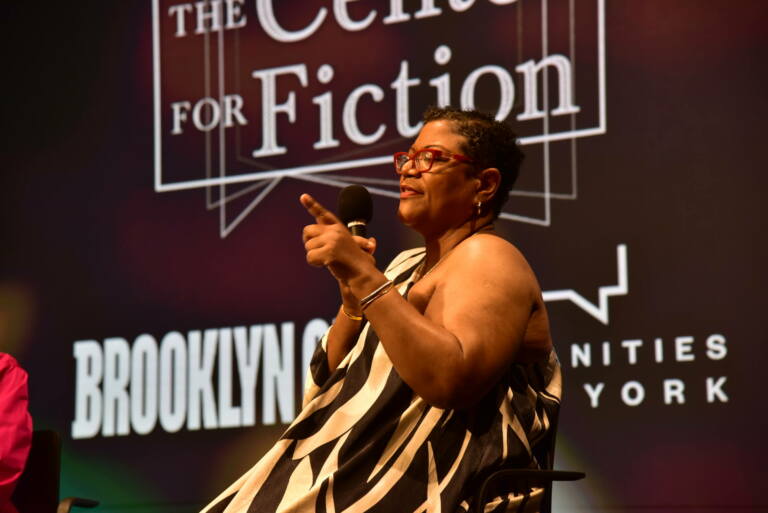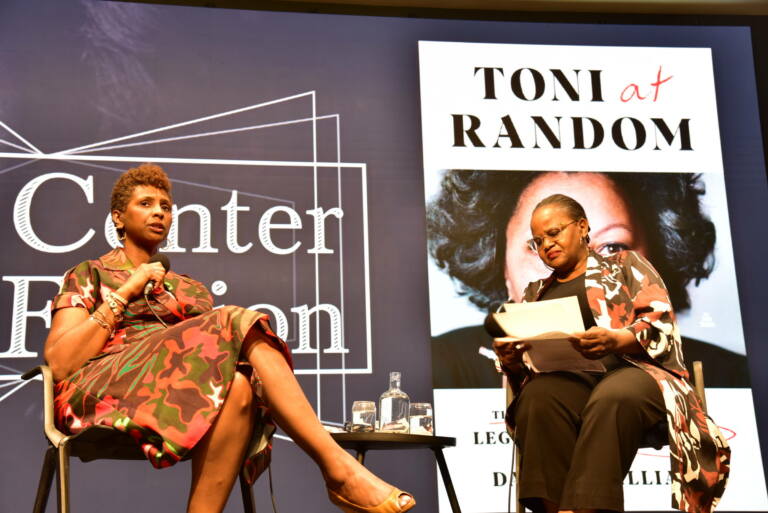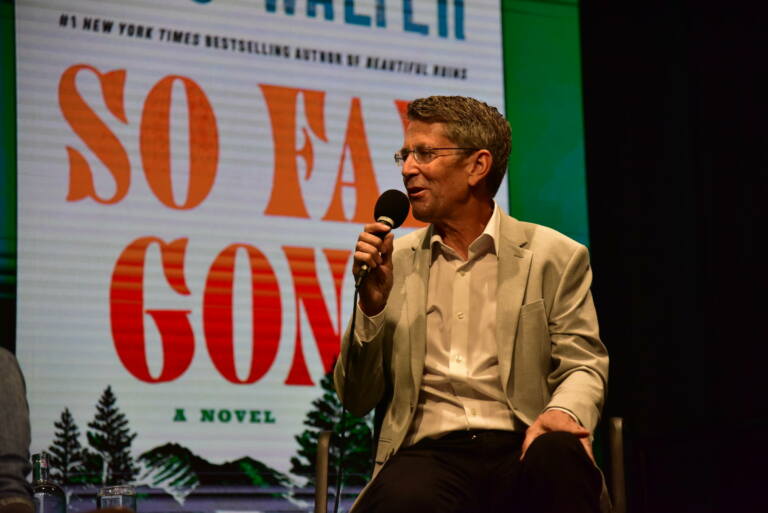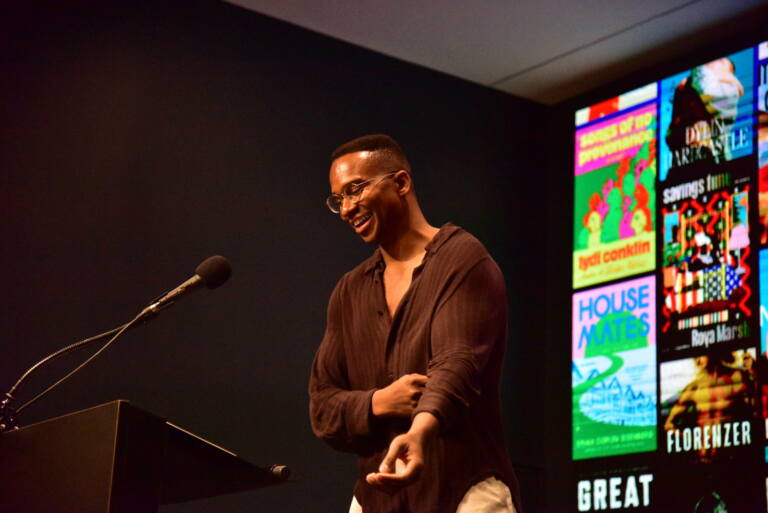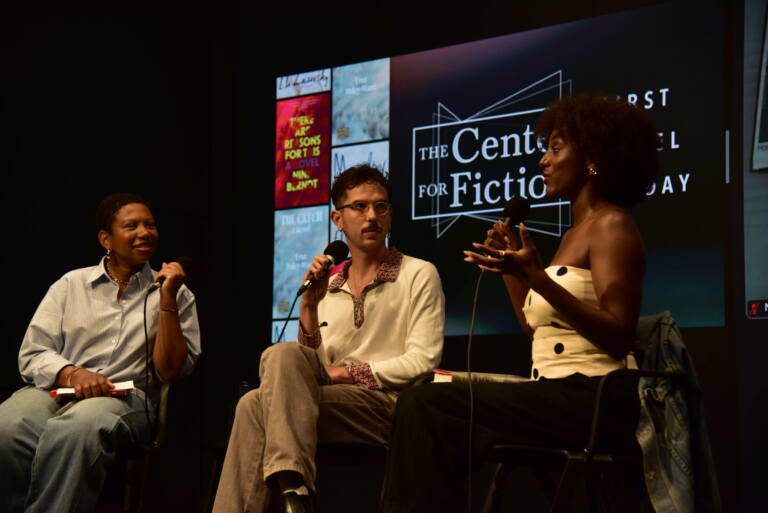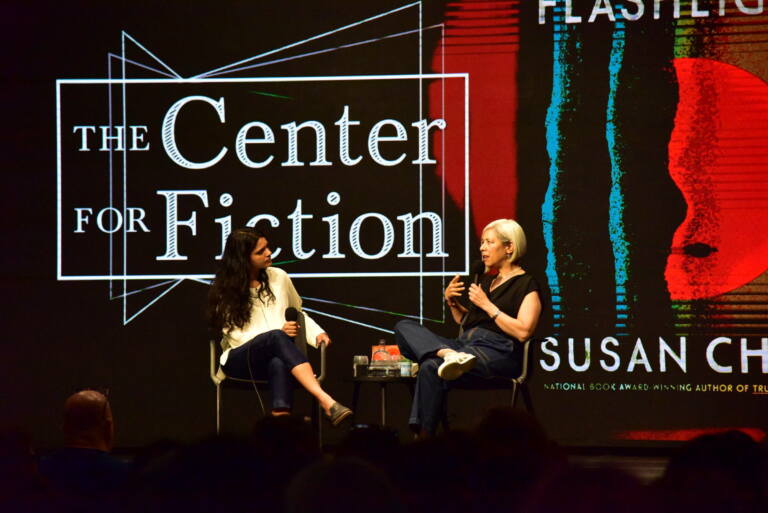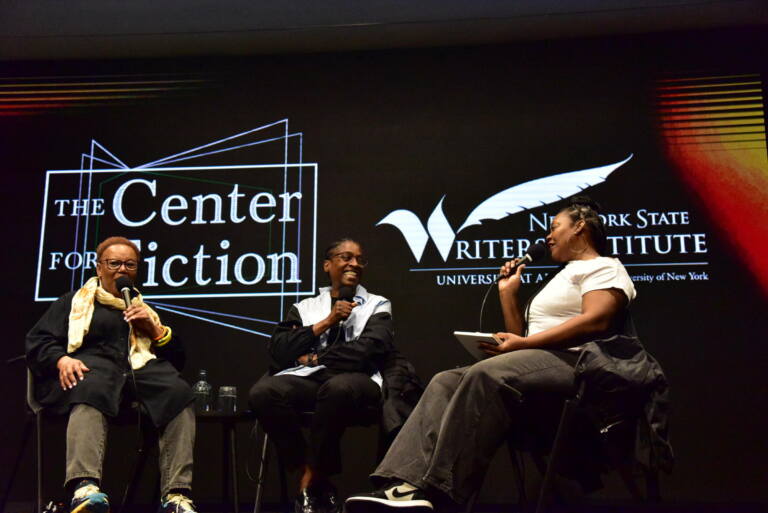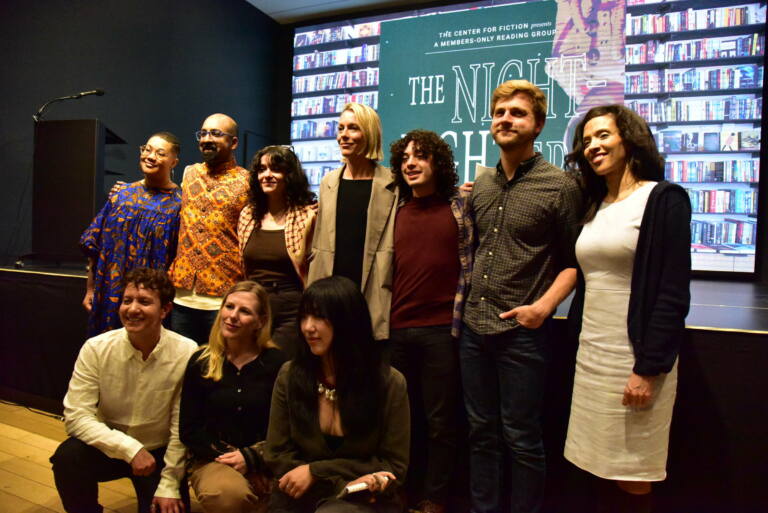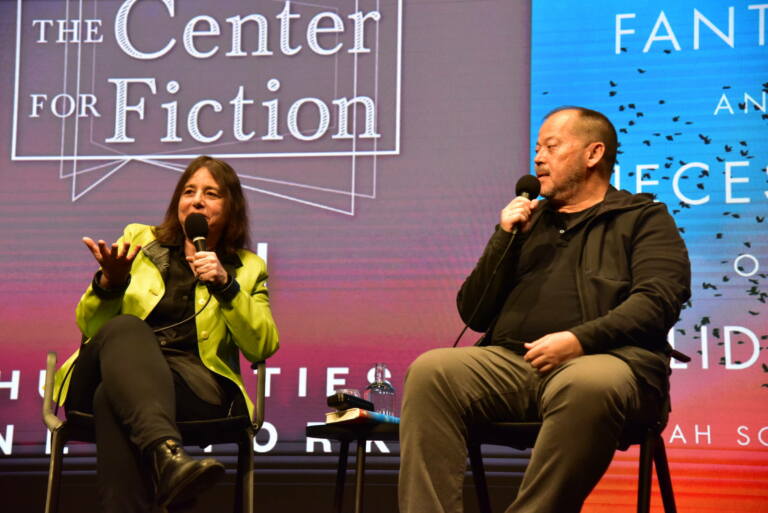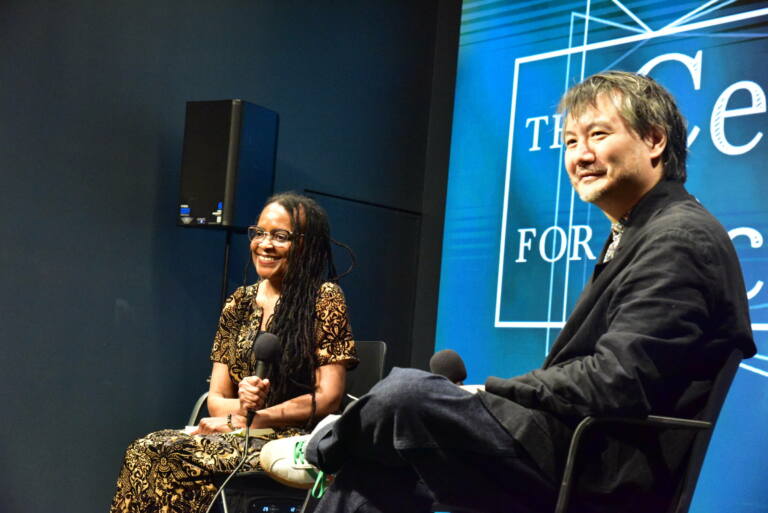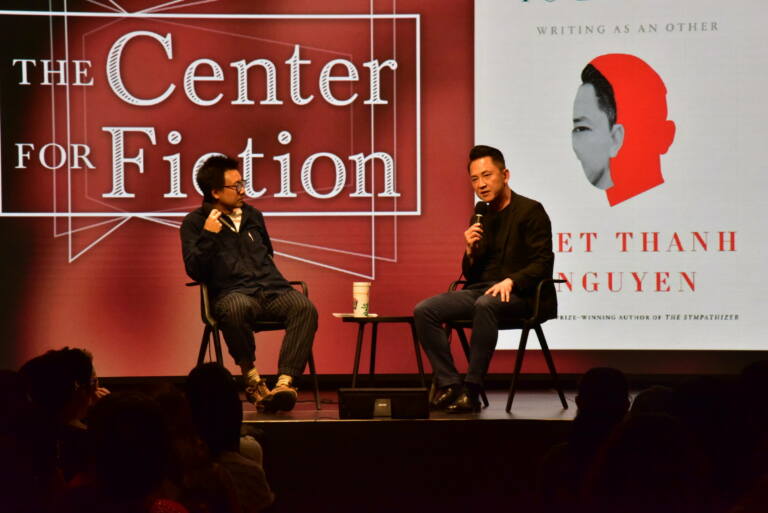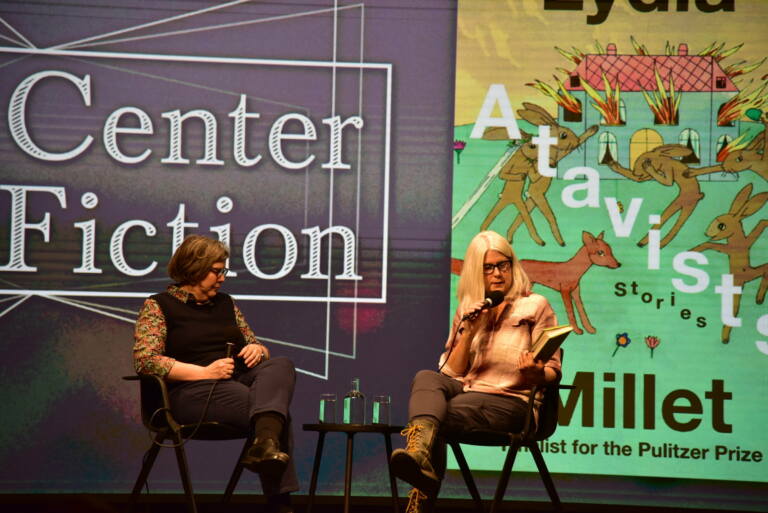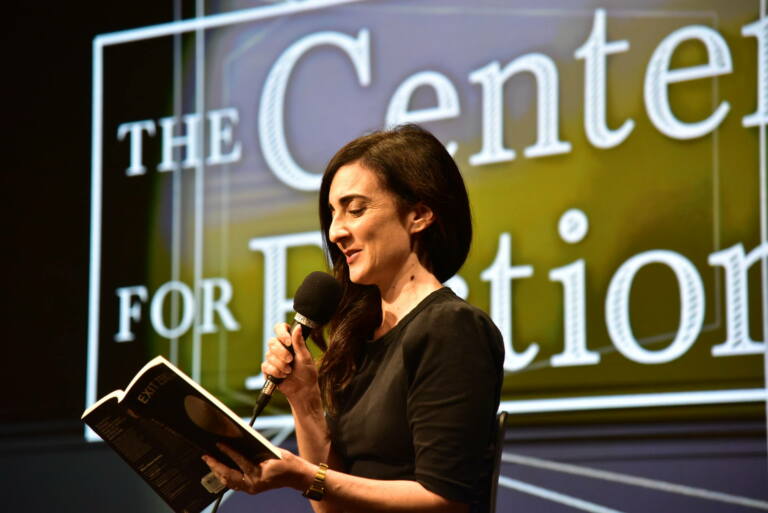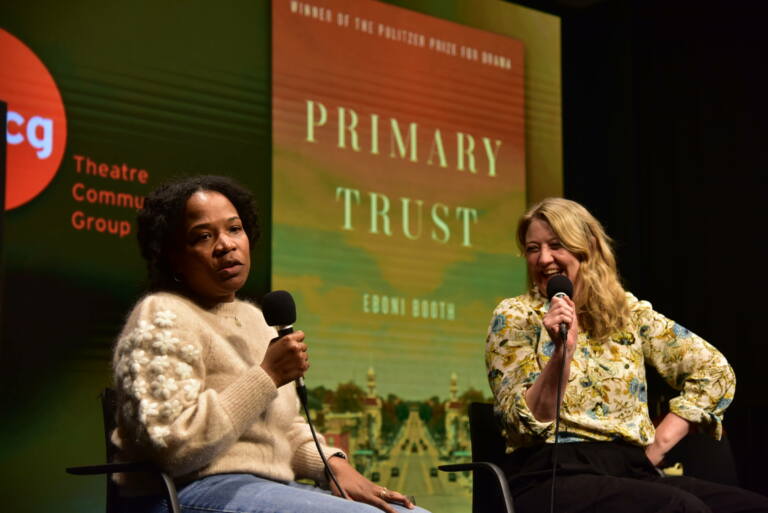September 12, 2024
In the first of a four-part series on housing, land, and the policies that shape our country, we go beyond perfunctory land acknowledgments into the history of land theft and the long fight for justice by Native people. This event is co-presented by American Indian Community House (AICH).
The Center for Fiction welcomed award-winning reporter, writer, and activist Rebecca Nagle to celebrate her new book, By The Fire We Carry. This powerful work of reportage tells the story of the generations-long fight for tribal sovereignty in Eastern Oklahoma, from the violent displacement of the Muscogee people in the 1830s to a landmark Supreme Court ruling returning more than 3 million acres of land in 2020. By chronicling contemporary legal battles and historic acts of Indigenous resistance, Nagle (a citizen of the Cherokee Nation) exposes centuries of greed, corruption, and lawlessness that have shaped our country.
Writer and Professor Audra Simpson (Mohawk Interruptus: Political Life Across the Borders of Settler States) joined Nagle for a conversation about her process of weaving history and narrative together to illuminate the state of Indigenous rights today.
Featured Book
-
.
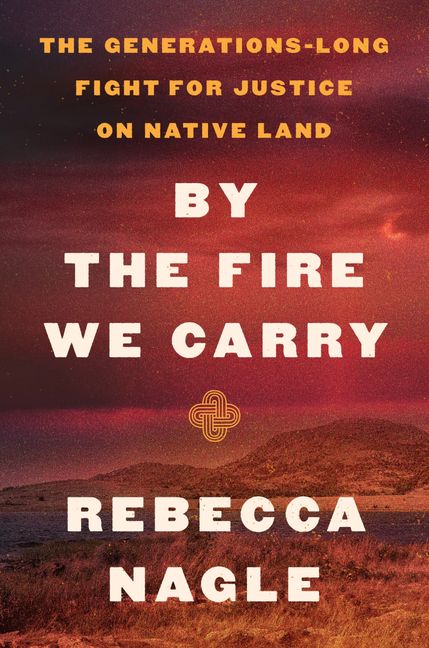
By the Fire We Carry
By Rebecca Nagle
Published by HarperCollins
Before 2020, American Indian reservations made up roughly 55 million acres of land in the United States. Nearly 200 million acres are reserved for National Forests—in the emergence of this great nation, our government set aside more land for trees than for Indigenous peoples.
In the 1830s Muscogee people were rounded up by the US military at gunpoint and forced into exile halfway across the continent. At the time, they were promised this new land would be theirs for as long as the grass grew and the waters ran. But that promise was not kept. When Oklahoma was created on top of Muscogee land, the new state claimed their reservation no longer existed. Over a century later, a Muscogee citizen was sentenced to death for murdering another Muscogee citizen on tribal land. His defense attorneys argued the murder occurred on the reservation of his tribe, and therefore Oklahoma didn’t have the jurisdiction to execute him. Oklahoma asserted that the reservation no longer existed. In the summer of 2020, the Supreme Court settled the dispute. Its ruling that would ultimately underpin multiple reservations covering almost half the land in Oklahoma, including Nagle’s own Cherokee Nation.
Here Rebecca Nagle recounts the generations-long fight for tribal land and sovereignty in eastern Oklahoma. By chronicling both the contemporary legal battle and historic acts of Indigenous resistance, <em>By the Fire We Carry</em> stands as a landmark work of American history. The story it tells exposes both the wrongs that our nation has committed and the Native-led battle for justice that has shaped our country.
Featuring
-

Rebecca Nagle
Rebecca Nagle
Rebecca Nagle is an award-winning reporter, writer, and citizen of Cherokee Nation. She is the creator and host of Crooked Media’s chart-topping podcast This Land. Her work has been featured in the Atlantic, the Washington Post, the Guardian, USA Today, Teen Vogue, the Huffington Post, among other outlets. Nagle lives in Tahlequah, Oklahoma.
Photo Credit: Sean Scheidt
-
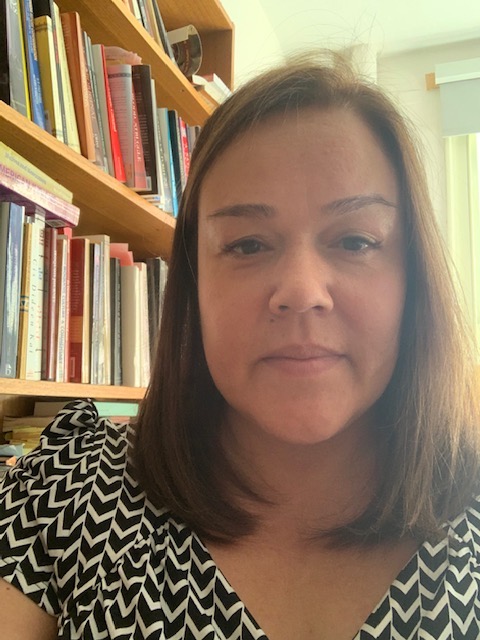
Audra Simpson
Audra Simpson
Audra Simpson is Professor of Anthropology at Columbia University. She researches and writes about Indigenous and settler society, politics and history. She is the author of Mohawk Interruptus: Political Life Across the Borders of Settler States (Duke University Press, 2014), winner of the Native American and Indigenous Studies Association’s Best First Book in Native American and Indigenous Studies Prize, the Laura Romero Prize from the American Studies Association, the Sharon Stephens Prize from the American Ethnological Society (2015) and CHOICE Outstanding Academic Title in 2014. She is co-editor of Theorizing Native Studies (Duke University Press, 2014). She has articles in South Atlantic Quarterly, Postcolonial Studies, Theory & Event, Cultural Anthropology, American Quarterly, Junctures, Law and Contemporary Problems, Wicazo Sa Review and Annual Reviews in Anthropology. She was a Distinguished Visiting Scholar at the Jackman Humanities Institute at the University of Toronto in 2018, the Nicholson Distinguished Visiting Scholar in the Unit for Criticism and Theory at University of Illinois (Urbana-Champaign) in 2019 and Distinguished Visiting Scholar at the University of Chicago in Spring, 2023. In 2010 she won Columbia University’s School for General Studies Excellence in Teaching Award. In 2020 she won the Mark Van Doren Award for Teaching. She was the second anthropologist in the 50-year history of the award to do so. She is a Kahnawà:ke Mohawk.
